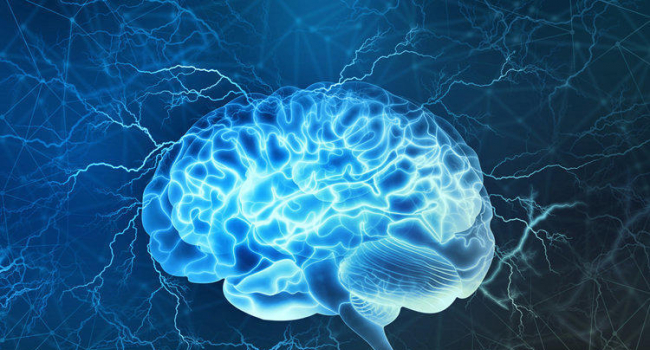- Latest news▼
-
15:11, April 24 Zombie deer disease possibly linked to hunters’ deaths

-
12:27, April 23 Appetite: Scientists found out the secret to the appeal of large portions of fast food

-
10:33, April 23 Scientists test new approach to fighting viruses

-
08:38, April 23 Ketamine may help with postpartum depression

-
22:12, April 22 Unhealthy amount of sugar found in baby food products of a well-known brand

-
19:41, April 22 Air pollution puts health of more than 1.6 billion workers globally at risk

-
17:25, April 22 Scientists found baked goods and lack of sleep to be more dangerous than alcohol

-
16:02, April 22 342 cases of measles recorded in Armenia so far in 2024

-
15:29, April 22 BrainStimulation: electrical brain stimulation alleviates anxiety and depression in the elderly

-
08:27, April 22 Cognitively stimulating jobs in midlife could lower dementia risk in old age, study finds

-
20:37, April 21 Environmental Health Perspectives: Microplastics ingested with food and water can spread from the gut to the brain

-
22:41, April 20 Scientists develop new method to safely stimulate immune cells to fight cancer

-
20:46, April 20 Blood test can determine who is at risk of developing multiple sclerosis - scientists

-
18:36, April 20 Next pandemic likely to be triggered by flu - scientists

-
12:16, April 19 Scientists grow human mini-lungs in lab

All materials
Injecting CRISPR into fetal brain may correct autism mutations

Researchers are edging closer to a therapy for Angelman syndrome that involves injecting molecules that can edit genes into the fetal brain. They have already succeeded in mice and say the approach could eventually treat people with the syndrome.
The work is of high interest because a similar strategy could also work for other genetic conditions linked to autism.
But the prospect of injecting molecules into fetal brains poses ethical questions, experts caution.
People with Angelman syndrome have severe developmental delays, seizures, impaired speech and, often, autism. They have a missing or mutated copy of a gene called UBE3A on the copy of chromosome 15 they inherit from their mother. The paternal copy is generally silent, so they have virtually no activity of the protein in neurons, where it is needed to modulate signals between neurons.
Other teams have tried to introduce a healthy copy of the gene or to unsilence the paternal copy in mice. But these strategies are ultimately impractical because they involve drugs with harsh side effects or giving children injections every few months.
In the new research, presented at a conference in February, Mark Zylka’s team injected the gene-editing enzyme CRISPR-CAS9 into the brains of embryonic mice. The method unsilenced the paternal copy of UBE3A in the mice. The researchers also rescued UBE3A expression in cultured human neurons, according to the unpublished findings.
Research suggests that the syndrome’s traits can be avoided if UBE3A is turned on before birth1. The work underscores the importance of intervening early in development.
“The earlier you put the genes back and try to fix the problem, the better the therapeutic benefit will be,” says Zylka, director of the Neuroscience Center at the University of North Carolina at Chapel Hill. “There’s a lot of interest in trying to break down this barrier to being able to treat prenatally.” The treatment may be tried in people within three to four years, Zylka says.
Experts caution that the work must be repeated in mice before it can be tested in people — and that scientists will first need to resolve the ethical concerns.
“Doing any gene manipulation in the fetal brain is kind of a dangerous thing to do, so that does concern me,” says Antonio Bedalov, associate member of the Fred Hutchinson Cancer Research Center in Seattle.
Scientists should move carefully because this is evolving research, others say.
“The idea that you could treat a fetus with [an enzyme] is just a very uncharted area, and there could contain a lot of risks,” says David Segal, professor of chemistry at the University of California, Davis, who was not involved in the research. “We need to move with caution.”
Full article: spectrumnews.org
Follow NEWS.am Medicine on Facebook and Twitter
- Video
- Event calendar
- Archive
- Most read
month
week
day
- JAMA Oncology: Urine test can help rule out high-grade prostate cancer with almost 100% accuracy, study shows 1208
- Daily Mail: Elderly woman in China gets infected with brain-eating amoeba 1165
- The Conversation: childhood trauma can cause pathological hoarding 1148
- Obesity: exercising before breakfast helps you lose weight faster 1148
- Daily Mail: Satiating food reduces cravings for sweets, nutritionist says 1122
- Scientists grow human mini-lungs in lab 1113
- First Armenian-German Conference entitled “Heart Failure Spring School” 1063
- Next pandemic likely to be triggered by flu - scientists 693
- Scientists found baked goods and lack of sleep to be more dangerous than alcohol 624
- 342 cases of measles recorded in Armenia so far in 2024 583
- Blood test can determine who is at risk of developing multiple sclerosis - scientists 575
- Scientists develop new method to safely stimulate immune cells to fight cancer 568
- Cognitively stimulating jobs in midlife could lower dementia risk in old age, study finds 552
- BrainStimulation: electrical brain stimulation alleviates anxiety and depression in the elderly 507
- Air pollution puts health of more than 1.6 billion workers globally at risk 340
- Find us on Facebook
- Poll





